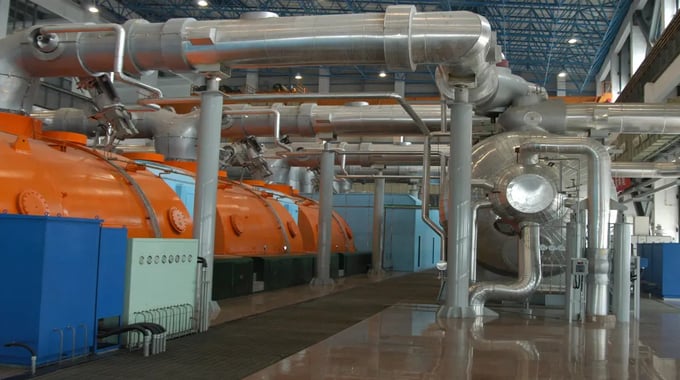December 9, 2025 | 02:35 GMT +7
December 9, 2025 | 02:35 GMT +7
Hotline: 0913.378.918
December 9, 2025 | 02:35 GMT +7
Hotline: 0913.378.918

A view of the Qinshan Nuclear Power Plant in Jiaxing City, east China's Zhejiang Province.
China has achieved the mass production of carbon-14 isotopes via its commercial reactor for the first time, announced the China National Nuclear Corporation (CNNC) on Saturday.
According to the CNNC, the project was carried out in China's very first nuclear power plant, Qinshan, and the production capacity is expected to fully meet domestic demand, as some 150 curies of carbon-14 were produced, much higher than the annual import of around 100 curies.
The Qinshan Nuclear Power Plant, located in Jiaxing City, east China's Zhejiang Province, launched the project in 2022 by producing carbon-14 in a heavy water reactor of commercial nuclear power units, in an attempt to ensure the domestic supply of radioactive isotopes.
Carbon-14 is widely applied as a marker in agriculture, chemistry, medicine, biology and other fields for being radioactive and detectable. In the past, China's carbon-14 supply largely relied on imports, which were both costly and uncertain, and as a result, the development of its downstream industries was also severely constrained.
Shang Xianhe, general manager of the Qinshan Nuclear Power Plant, told China Media Group (CMG), "We are now able to produce carbon-14 domestically, it will greatly increase the number of domestic users and further promote the development of downstream application technologies for carbon-14."
"The first difficulty actually came from the technical and management barriers. We all know that a nuclear power plant is a power-producing reactor. If we want to produce carbon-14, we need to first understand our user demand and then put the target into the reactor to irradiate it," he explained.
"After radiation, the target object needs to go through a nuclear chemical process to get purified and transformed into the material that meets the application requirements. The whole process spans a relatively long chain," Shang added.
(CGTN)

(VAN) Newly designated initiatives in Australia, Canada and South Africa represent science-based and inclusive examples of ecosystem restoration.

(VAN) Rice-based food has been selected as Japan's 'Dish of the Year' for 2025, reflecting public interest in the stable supply of the country's staple food amid a recent rice shortage.

(VAN) A research project in Sweden explored how valuable substances can be extracted from organic waste, such as food waste and animal manure, and how this loop can be closed by producing animal feed.

(VAN) Average retail fertilizer prices continued to be mostly higher during the fourth week of November 2025, according to sellers surveyed by DTN.

(VAN) Inaugural Appeal focuses on cost-effective agricultural solutions that link urgent needs with long-term resilience.

(VAN) Landmark SOLAW 2025 report reminds us that resources for food are not infinite.

(VAN) Climate change is a growing concern for agricultural productivity and several studies have focused on how climate variations can impact crop yields.